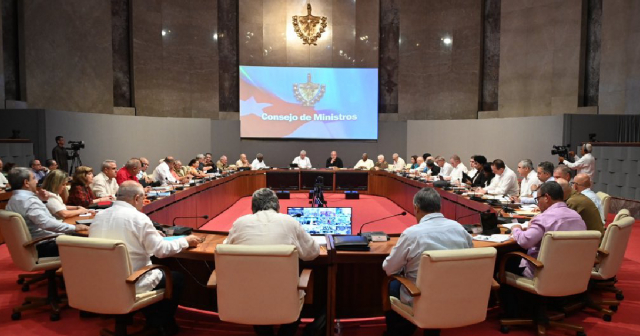The Cuban government reiterated in a recent program on Cuban Television that Cubans residing abroad will not lose their properties on the island.
"It was decided to include an article, making it very clear that Cuban citizens residing abroad, in accordance with Article 58 of the Constitution of the Republic, are entitled to the use, enjoyment, and free disposal of their properties established in the national territory in accordance with what the law expresses in this regard," said José Luis Toledo Santander, President of the National Assembly's Committee on Legal and Constitutional Affairs, during last Thursday's Round Table.
According to Toledo Santander, this has been a topic that has caused great concern among Cubans and "has been manipulated a lot online," he stated.
The decision, although not fully explained in the television program, arises after meetings "behind closed doors" with the deputies.
The official argued that these discussions "have also prompted a new version of the document that will be circulated and is in the process of reprinting and discussion for the deputies".
However, beyond the speculations about the matter, Cubans had doubts about the ambiguous wording of some of the issues in that bill that will be presented on July 17 in the session of the ANPP.
Toledo Santander stated that "in the new version that is now being submitted for consideration and decision by the deputies for this session, for example one of the topics that was worked on with great care and precision, because the deputies were so interested, was the issue of effective residency."
The project establishes that "this migratory status is acquired when the person has lived permanently in the country for a certain period of time, allowing them to assume that status," the parliamentarian mentioned.
In this case, Toledo Santander expresses that "the law will be precise in clarifying that it may be the case that the person does not live the times that are definitively established," but "has sporadically lived in the country at different times, but during that period established in the natural year, they accumulate a stay." This means that beyond uninterrupted stays, the time spent on the island must be cumulative.
In addition, he pointed out that there are other ways to demonstrate rootedness in the country, such as maintaining a residence or having family members on the island, fulfilling tax obligations in Cuba, being affiliated with different organizations in the country, or having a bank account.
This also allows them to apply for permanent residency in the country, with the condition that "if the person maintains the conditions under which it was granted, they do not have to make any further changes and it is unalterable," pointed out in the television space where Homero Acosta Álvarez, Secretary of the ANPP and the Council of State, was also present.
Lawyer Eloy Viera Cañive, when analyzing this intervention in the independent media ElToque, detailed regarding this last point that "Toledo's clarification would not make sense, unless they are considering not only the permanence in the country as an essential requirement for the maintenance of the effective resident condition."
Viera Cañive calls for taking into account that the evidence of the "new changes" is only reflected in the statements of Toledo Santander, as the new version of the project has not been published on the official website of the National Assembly of People's Power.
In any case — and as is common — Toledo's statements are imprecise. However, they are a clear example of how the Cuban regime understands transparency and accountability," clarified the director of ElToque Jurídico.
What do you think?
COMMENTFiled under:
